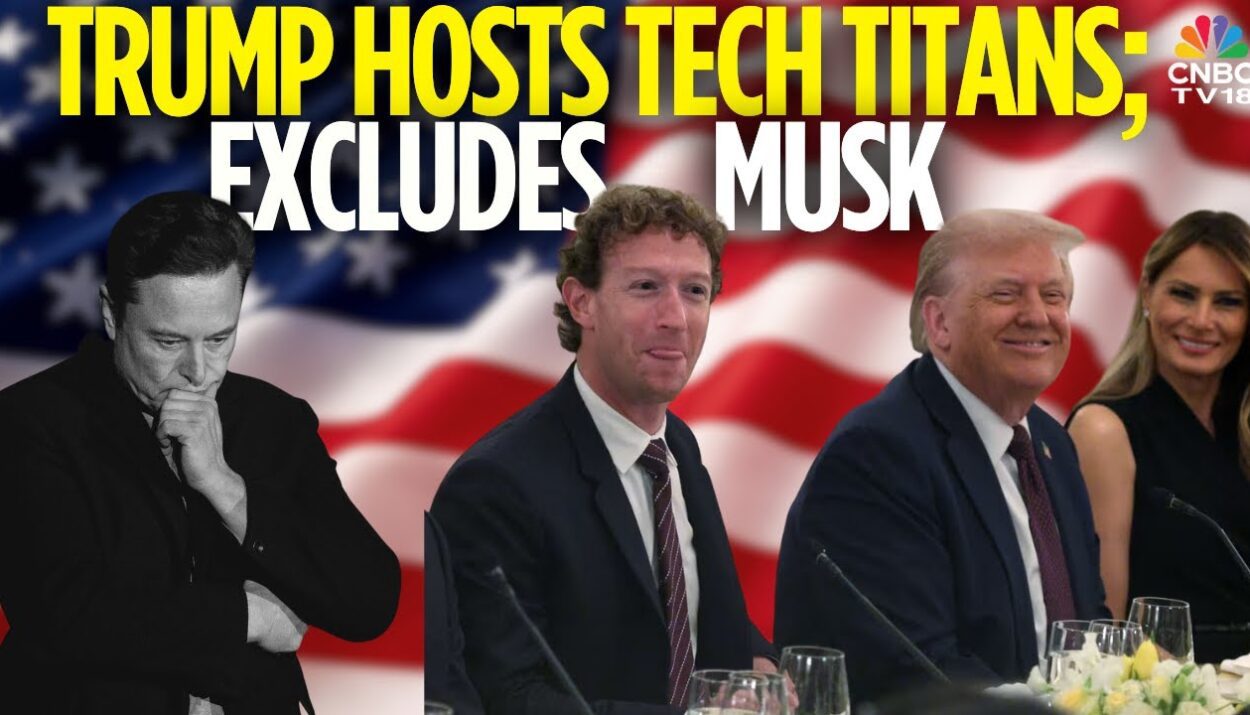At a rare White House dinner, the world’s most powerful tech titans lined up to pledge eye-popping U.S. investments — but the absence of Elon Musk stole some of the spotlight.
A Gathering of Power and Politics
On Thursday night, U.S. President Donald Trump hosted a glittering dinner in the White House State Dining Room, bringing together an extraordinary cast: Apple’s Tim Cook, Microsoft’s Satya Nadella, Google’s Sundar Pichai, Meta’s Mark Zuckerberg, OpenAI’s Sam Altman, Oracle’s Safra Catz, AMD’s Lisa Su, Micron’s Sanjay Mehrotra, and Palantir’s Shyam Sankar — with Microsoft founder Bill Gates and Google co-founder Sergey Brin also present.
Trump framed the dinner as a show of strength: proof that the U.S. remains the center of the artificial intelligence and semiconductor revolutions. Yet one conspicuous absence dominated chatter — Tesla and SpaceX boss Elon Musk, once a Trump ally, who has since fallen out with the president.
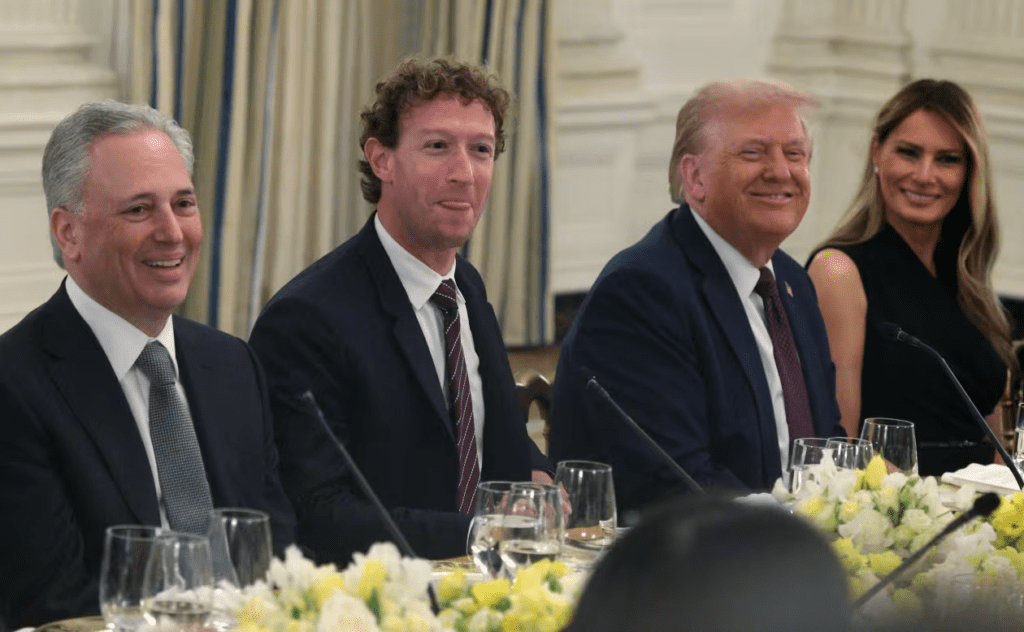
The Numbers Game
In a striking ritual, Trump asked each CEO around the table how much they were investing in America. One by one, they responded with staggering figures:
- Apple ($AAPL) – Tim Cook pledged $600 billion in U.S. investments through 2028.
- Meta ($META) – Mark Zuckerberg matched the number: $600 billion, including its massive $50 billion Louisiana data center.
- Google ($GOOGL) – Sundar Pichai promised $250 billion over the next two years.
- Microsoft ($MSFT) – Satya Nadella said $75–80 billion this year alone.
AMD, Micron, Oracle, and Palantir also highlighted AI and data center expansion. Safra Catz of Oracle declared this “the most exciting time in America ever.”
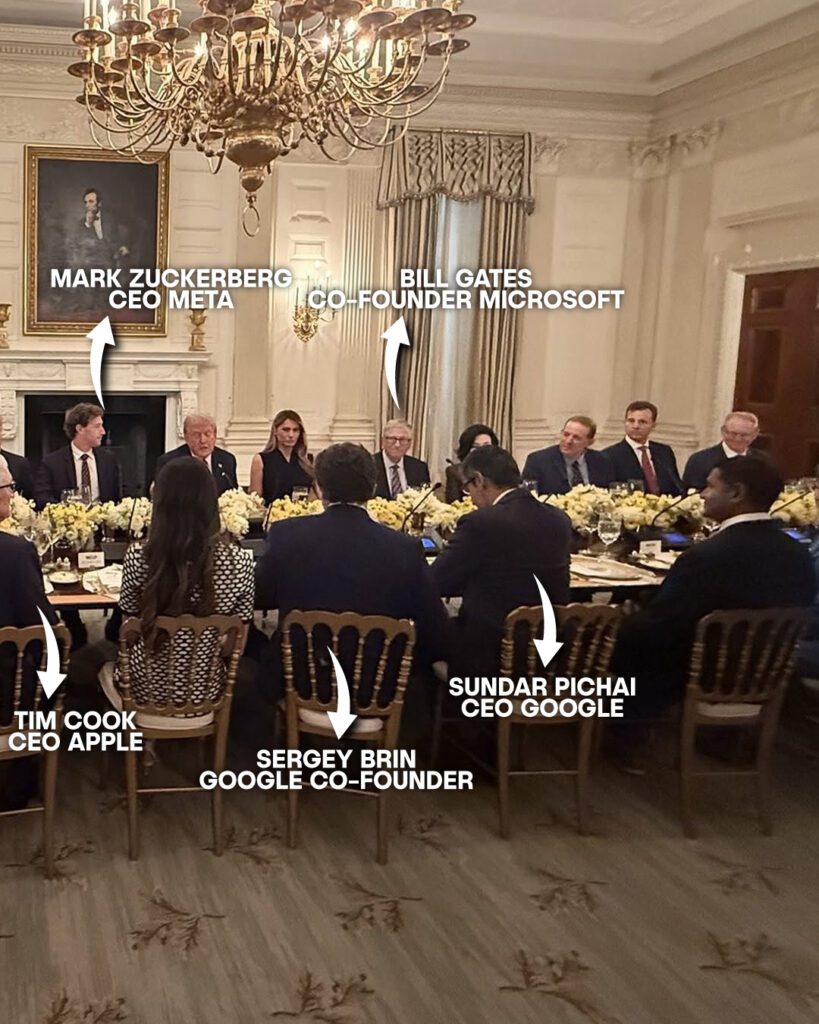
Interesting facts from the Trump–Tech Titans Dinner
“High IQ Group” Roast Moment: President Trump cheekily dubbed the assembled CEOs the “High IQ Group” and delivered a tongue-in-cheek roast of Satya Nadella, joking how Microsoft stock rose from $28 to over $500, calling it “a job well done”
Rose Garden Redux: Stone Patio, Mar-a-Lago Vibes: The dinner marked the first White House event in the newly renovated Rose Garden, now designed with stone pavers and umbrella tables inspired by Trump’s Mar-a-Lago resort
AI Education Summit Precedes Dinner: Earlier that day, Melania Trump led a high-profile AI Education event promoting the “Presidential AI Challenge,” drawing executives from Google, IBM, OpenAI, and Code.org to pledge support for AI integration in U.S. schools
Media Moment: Trump Needs Help from Melania: A brief on-camera moment saw Trump fumble a reporter’s question due to health-related slowness—a moment Melania promptly jumped in to support, drawing attention amid ongoing health rumors
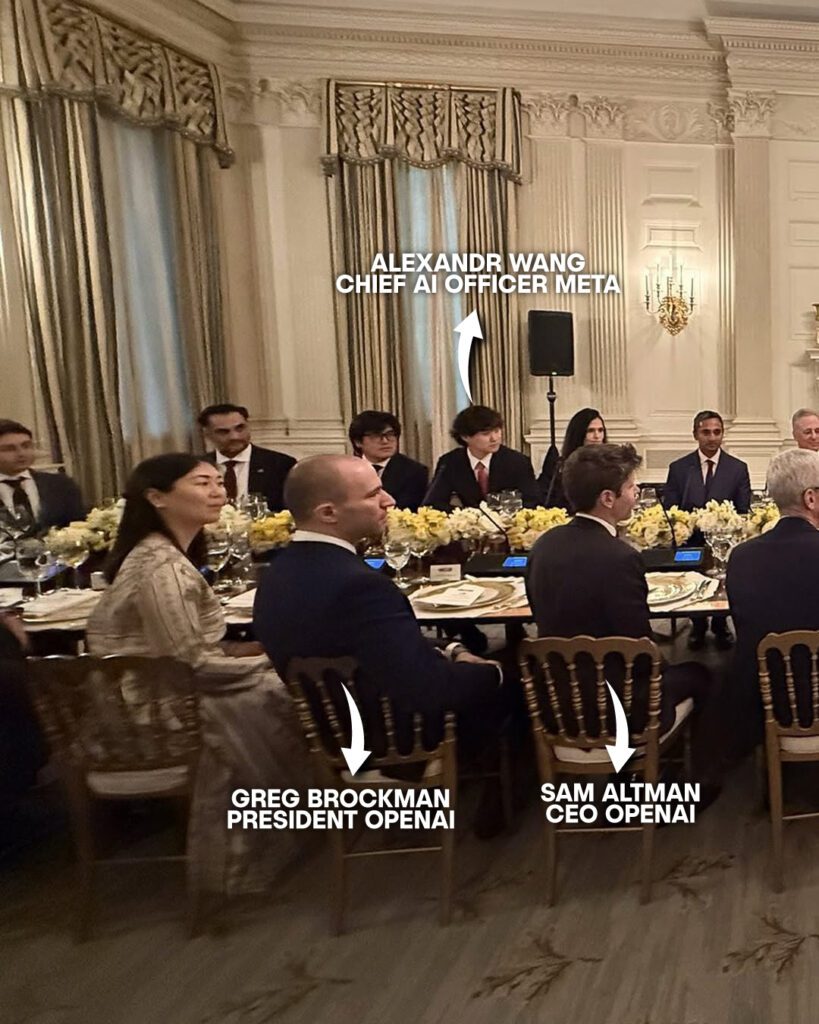
Public Snub: Musk and Nvidia Absent: The most notable absentees were Elon Musk and Nvidia CEO Jensen Huang; neither were present. Musk later said he was invited but couldn’t attend; his exclusion underscored growing political rifts
Big Tech Thanks the President — Literally: The Evening quickly turned into a symphony of praise for Trump’s pro-business and AI-friendly agenda. While Elon Musk was noticeably absent, no shortage of deference filled the room: Cook showered the president with “thank yous” for “setting the tone” for massive U.S. investment; Altman lauded the policy as “a very refreshing change”; Zuckerberg credited Trump with driving “the next wave of innovation”; and Pichai openly expressed relief over Google’s positive antitrust outcome—implicitly thanking Trump’s administration for constructive engagement.
Meta CEO Mark Zuckerberg was caught on a hot mic admitting to Donald Trump that he had no idea how to answer a question while sitting next to the president at a White House event.
Tariffs, Energy, and AI Power
Trump used the moment to reiterate a hard line:
firms that don’t shift production to the U.S. will face “fairly substantial tariffs”. He also promised easier access to energy permits to fuel AI-hungry data centres, framing America as “leading China by a great amount.”
First Lady Melania Trump, who chaired a new White House AI Education Task Force earlier that day, was praised repeatedly for her role in shaping workforce training programs.
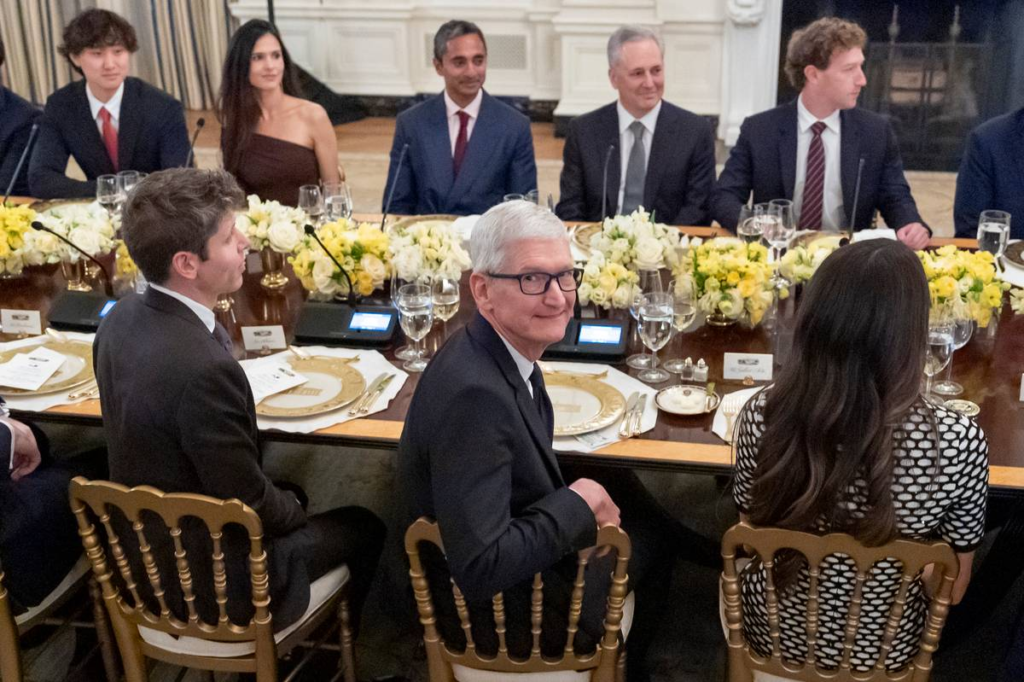
The Optics: Loyalty on Display
The dinner carried more than policy weight — it was theater. Executives offered lavish praise for Trump’s leadership, echoing a dynamic familiar from his cabinet meetings. For some, the spectacle bordered on surreal: rivals and competitors, united in pledging allegiance to Trump’s economic agenda.
Musk’s absence underscored the changing political fault lines in tech. Once Trump’s go-to figure on government efficiency, Musk is now a critic — and his no-show contrasted sharply with the deference shown by others.
What It Means
The pledges signal a historic wave of domestic tech investment, but they also highlight the pressure CEOs face to stay in Trump’s good graces. For markets, the numbers matter less than the direction: AI, chips, and data centres will anchor capital flows in the coming years.
For politics, the dinner demonstrated how deeply entwined Big Tech and the White House have become. Whether this alignment fuels innovation or simply concentrates power further in a few hands is the open question.
Trump turned the White House dinner into a stage for US tech giants to showcase their spending and their loyalty. It may accelerate AI and chip build-out at home, but it also raises uncomfortable questions about tariffs, power concentration, and whether corporate pledges are genuine growth or political theatre.
Disclosure: This article does not represent investment advice. The content and materials featured on this page are for educational purposes only.
The Big Question: Are Crypto ETFs About to Explode?
ETF Boom or Bubble? US Now Has More ETFs Than Stocks as Retail Piles In
Bitcoin ETFs Surge on Trump Election Prospects, Market Braces for Volatility


